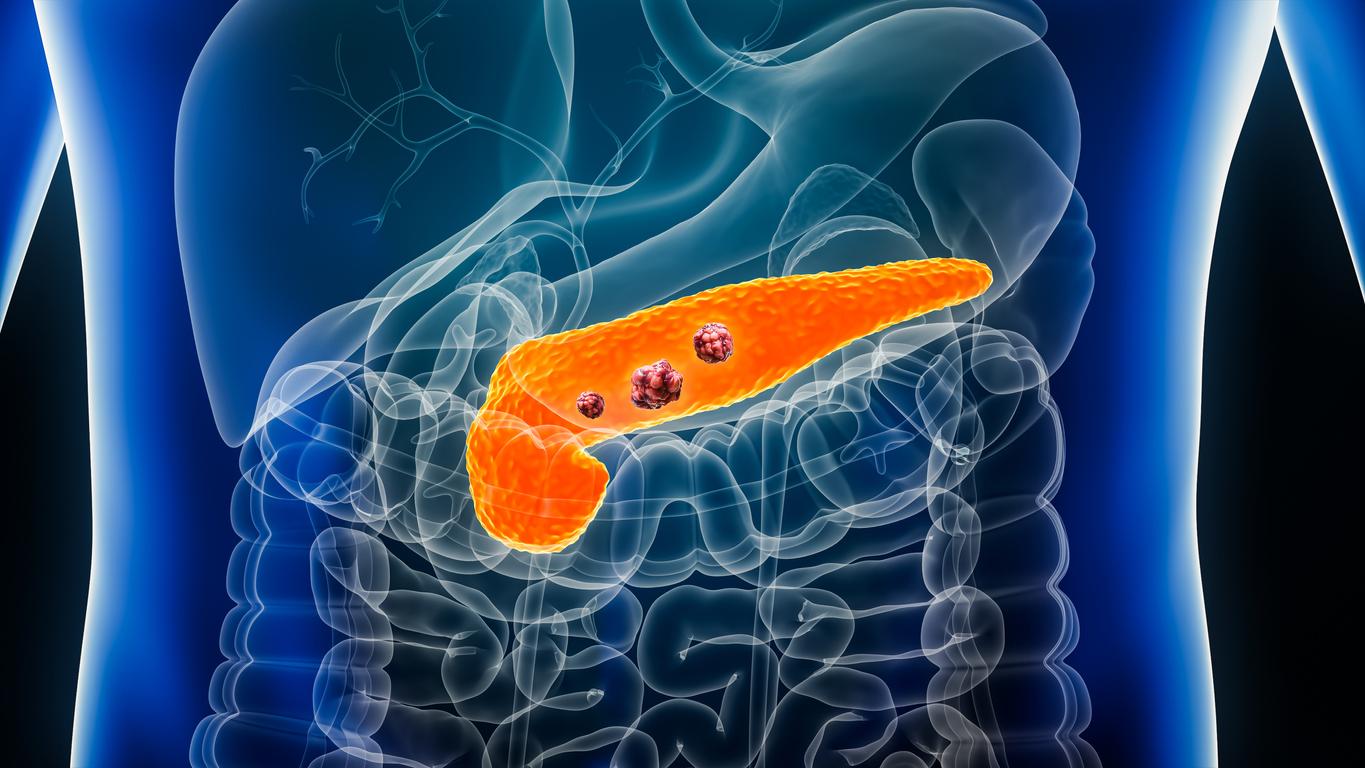French researchers discover an unexpected new role for vitamin B6 in the development of pancreatic cancer.

- French researchers have discovered that pancreatic cancer cells use vitamin B6 to replicate and proliferate.
- Blocking the vitamin B6 transporter SLC43A2 could deprive pancreatic cancer cells of a nutrient essential for their survival.
- This discovery opens new perspectives for the development of more effective and less toxic treatments against pancreatic cancer.
Researchers from Inserm and the University of Nantes have discovered that pancreatic cancer cells use vitamin B6 to replicate and proliferate. This surprising discovery, published in the journal Nature Metabolism June 21, 2024, could pave the way for new therapeutic strategies to combat this particularly aggressive cancer.
A complex mechanism
The study led by Dr. Nicolas Mechta-Grigorou’s team revealed that pancreatic cancer cells overexpress a vitamin B6 transporter, called SLC43A2. This transporter allows cells to absorb more vitamin B6, which is then used to produce molecules essential for their growth and division.
Promising therapeutic implications
This discovery suggests that blocking the SLC43A2 transporter could deprive pancreatic cancer cells of the vitamin B6 they need to survive. Researchers are already exploring this promising avenue by developing new drugs that could specifically target this transporter.
A new front in the fight against pancreatic cancer
Pancreatic cancer is one of the deadliest cancers, with a 5-year survival rate of less than 10%. Current treatments are often ineffective and cause significant side effects. The discovery of the role of vitamin B6 in the development of pancreatic cancer opens new perspectives for the development of more effective and less toxic treatments.


















